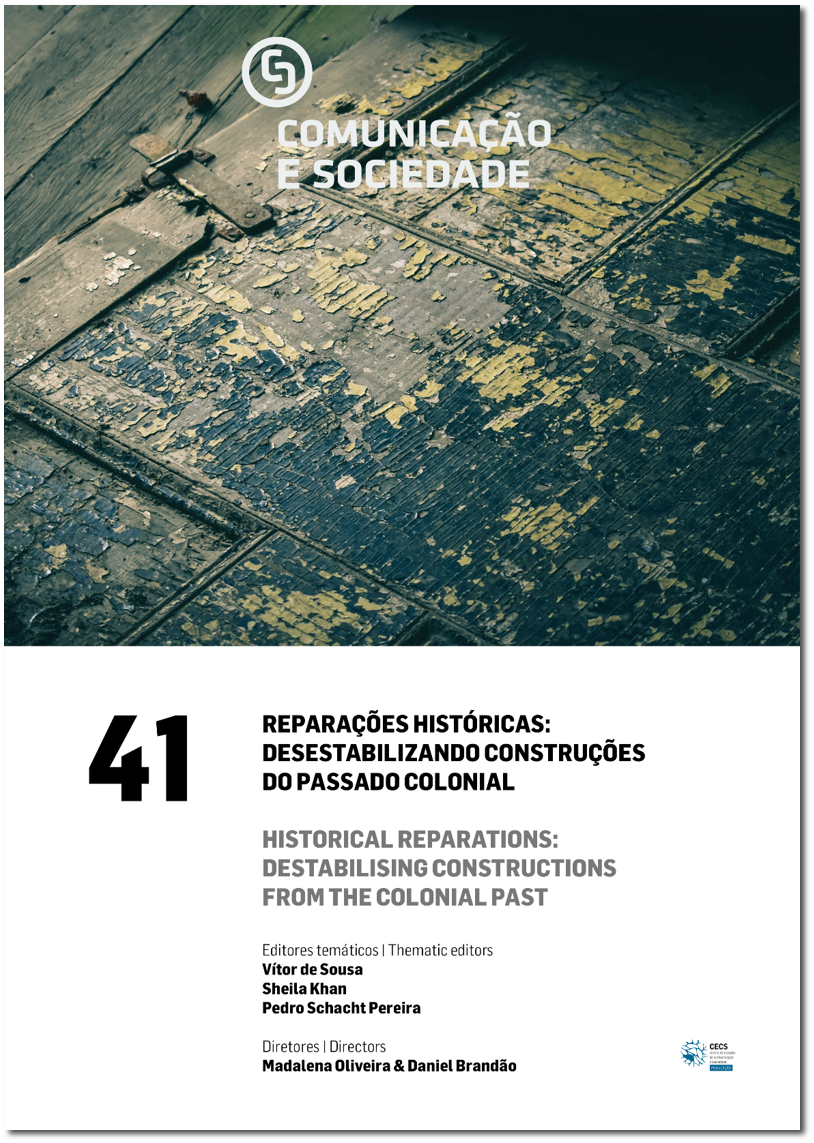Knowledge Production, Historical Reparation and Construction of Alternative Futures. Interview With Miguel de Barros
DOI:
https://doi.org/10.17231/comsoc.41(2022).3719Abstract
The COVID-19 pandemic dramatically exacerbated pre-existing social inequalities and added urgency to the awareness of the need for social transformation. Social movements for the decolonisation of knowledge and governance systems have gained new momentum and the demands for historical reparation and climate, health and food justice. Historical reparation has sometimes been equated only to restitution of material goods or financial compensation. Still, it is a much more complex endeavour that necessarily involves making knowledge production a more engaging and participatory process, inside and outside the academy, linking different knowledge to build fairer and more inclusive futures...
Downloads
References
Chakrabarty, D. (2021). The climate of history in a planetary age. University of Chicago Press. DOI: https://doi.org/10.7208/chicago/9780226733050.001.0001
Communitas. (2020, February 13). Miguel de Barros: A produção de conhecimento deve ser “mais envolvente”. https://www.communitas.pt/ideia/miguel-de-barros-a-producao-de-conhecimento-deve-ser-mais-envolvente/
Cunha, A. S., Barros, M. de., & Martins, R. (Eds.). (2018). “Hispano-lusophone” community media: Identity, cultural politics and difference. InCom-UAB Publicacions.
García-Jiménez, L., & Simonson, P. (2021). Roles, aportaciones e invisibilidades femeninas en el campo de la investigación en comunicación. Revista Mediterránea de Comunicación/Mediterranean Journal of Communication, 12(2), 13–15. https://www.doi.org/10.14198/MEDCOM.20163 DOI: https://doi.org/10.14198/MEDCOM.20163
Licata, L., Khan, S., Lastrego, S., Cabecinhas, R., Valentim, J. P., & Liu, J. H. (2018). Social representations of colonialism in Africa and in Europe: Structure and relevance for contemporary intergroup relations. International Journal of Intercultural Relations, 62, 68–79. https://doi.org/10.1016/j.ijintrel.2017.05.004 DOI: https://doi.org/10.1016/j.ijintrel.2017.05.004
Lopes, C., & Kararach, G. (2020). Structural change in Africa. Misperceptions, new narratives and development in the 21st century. Routledge. DOI: https://doi.org/10.4324/9780429436673
Macamo, E. (2021). Unmaking Africa — The humanities and the study of what? History of Humanities, 6, 381–395. https://doi.org/10.1086/715863381 DOI: https://doi.org/10.1086/715863
Merton, R. K. (1968). The Matthew effect in science. The reward and communication systems of science are considered. Science, 159(3810), 56–63. https://doi.org/10.1126/science.159.3810.56 DOI: https://doi.org/10.1126/science.159.3810.56
Rede TVT. (2021, December 13). Fechamento de fronteiras para a África é como um “novo apartheid” | Mia Couto no BdF Entrevista [Video]. YouTube. https://www.youtube.com/watch?v=41DJaEXIKBc
Rossiter, M. W. (1993). The Matthew Matilda effect in science. Social Studies of Science, 23, 325–341. https://doi.org/10.1177/030631293023002004 DOI: https://doi.org/10.1177/030631293023002004
Downloads
Published
How to Cite
Issue
Section
License
Copyright (c) 2022 Rosa Cabecinhas, Miguel de Barros

This work is licensed under a Creative Commons Attribution 4.0 International License.
Authors own the copyright, providing the journal with the right of first publication. The work is licensed under a Creative Commons Attribution 4.0 International License.












